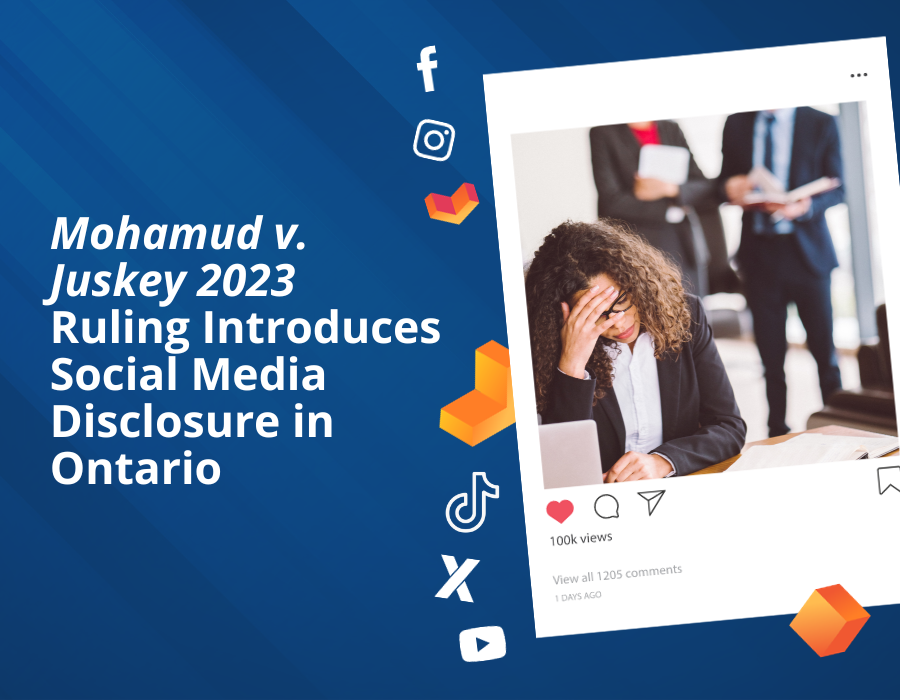Mullens v Toor, 2016 BCSC 1645
In Mullens v Toor, the Court denied the relevance of evidence that included the plaintiff’s internet blog and subsequent social media content when assessing damages.
The plaintiff claimed damages arising from a motor vehicle accident. She alleged that she was forced to forgo her successful career as a bank manager due to ongoing physical and psychological injuries. However, the defendant presented evidence involving the plaintiff’s Facebook, Twitter, and Instagram content that included parts of her online blog. Generally, the blog portrayed the plaintiff as a “happy, fun-loving, outgoing” individual. The plaintiff claimed that the blog was not reflective of her struggles, maintaining that the blog was used solely for therapeutic purposes.
Justice Verhoeven agreed with the plaintiff’s explanation and concluded that social media evidence should be treated with scrutiny as it does not always accurately reflect a party’s state of mind while recovering from serious injuries. Justice Verhoeven concluded that he “accept[s] that the happy, fun-loving and outgoing portrayal she presented was not in accordance with reality, but represented a deliberate effort to so portray herself in order for the blog to be successful and for her own therapeutic purposes.”
Social media is being used as evidence in personal injury cases and you can no longer ignore what your clients post online. Private Footprint is a powerful tool that allows lawyers to quickly view, organize, and make sense of the overwhelming volume of social media content generated by clients. You can easily monitor social activity for each client separately, flag specific posts, and quickly generate detailed reports which document your client’s lives before and after life-altering events.
Contact us today to learn more about Private Footprint and how you can start protecting the value of your files.






























